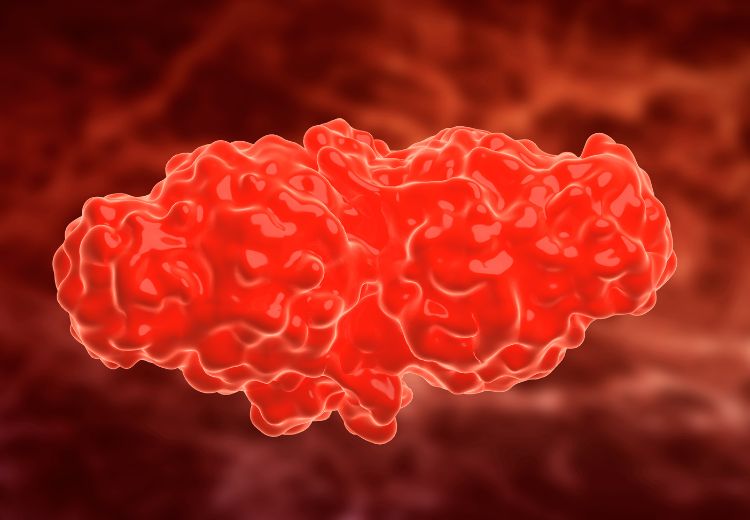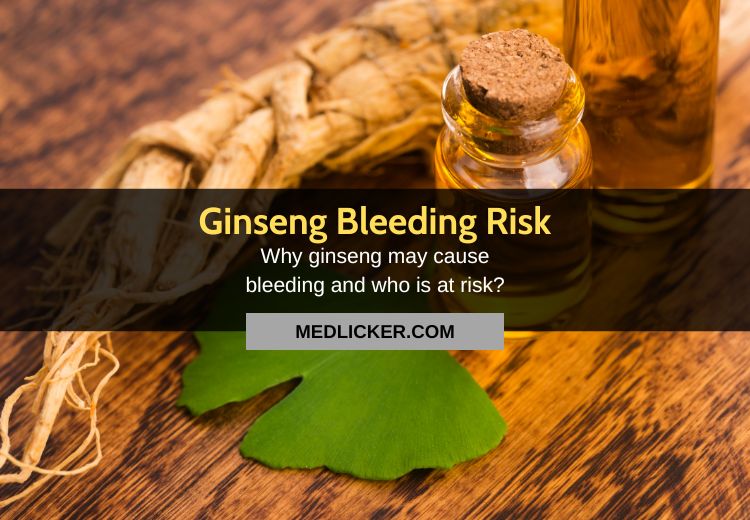Why Ginseng May Cause Bleeding?
Ginseng, also known as Panax ginseng, is a popular herbal supplement that has been used in traditional medicine for centuries. It is believed to have various health benefits, including boosting energy levels and improving overall well-being.
However, one potential risk associated with taking ginseng is increased bleeding.
This can be a cause for concern, especially for individuals who are already at risk for bleeding disorders or taking blood-thinning medications.
But why does ginseng have this effect? Here are some possible explanations:
Interference with Blood Clotting
Ginseng contains compounds called ginsenosides, which have been found to interfere with the body's ability to form blood clots.

Ginseng may affect blood clotting, which increases the risk of bleeding
Firstly, ginseng contains compounds called ginsenosides, which have been found to inhibit platelet aggregation. Platelets are cells in our blood responsible for forming clots to stop bleeding. When these platelets cannot aggregate properly due to the presence of ginsenosides, it can increase the risk of bleeding (1).
Interactions with Medication
Ginseng can interact with various medications and increase the risk of bleeding. These include but are not limited to antiplatelet drugs (e.g. aspirin, clopidogrel), anticoagulants (e.g. warfarin, heparin), and nonsteroidal anti-inflammatory drugs (e.g. ibuprofen, naproxen). It is crucial to inform your healthcare provider about all the medications you are taking before incorporating ginseng into your routine
Individual Sensitivity
Everyone's body reacts differently to substances, including herbal supplements.
Some individuals may be more sensitive to the effects of ginseng on blood clotting and experience increased bleeding as a result.
Dosage and Quality
The amount and quality of ginseng in a supplement can also play a role in its potential to cause bleeding. Higher doses of ginseng may have a stronger effect on blood clotting, and the quality of the supplement may affect its potency.
Medical conditions that may increase bleeding risk
Individuals with bleeding disorders such as hemophilia or von Willebrand disease should use caution when consuming ginseng, as it may exacerbate their condition. Additionally, those with liver disease or certain types of cancers should also consult with a healthcare professional before taking ginseng due to its potential effects on blood clotting.
Precautions for Ginseng Users
If you are considering taking ginseng or currently taking it, here are some precautions to keep in mind:
- Consult with your doctor before starting ginseng supplementation, especially if you have a bleeding disorder or take blood thinning medications.
- Be cautious when combining ginseng with other supplements or medications, as they may interact and increase the risk of bleeding.
- Monitor your body's response to ginseng. If you notice any unusual or excessive bleeding, stop taking it immediately and seek medical attention.
- Choose a reputable brand and follow recommended dosages to minimize potential risks.
The Bottom Line
While ginseng may offer potential benefits for overall health and well-being, it is essential to be aware of its possible effects on blood clotting and take necessary precautions. Always prioritize your safety and consult with a healthcare professional before incorporating any supplement into your routine. So, if you are considering taking ginseng, make sure to do your research and approach it with caution.
| Written by: | Michal Vilímovský (EN) |
|---|---|
| Education: | Physician |
| Image resources: | Canva.com |
| Published: | November 15, 2023 at 8:02 PM |
| Next scheduled update: | November 15, 2025 at 8:02 PM |
Get more articles like this in your inbox
Sign up for our daily mail and get the best evidence based health, nutrition and beauty articles on the web.


Ache in left arm that you should not ignore
Alkaline water dangers: why you should not drink it
How to Avoid Sleepiness While Studying?
23 Foods That Increase Leptin Sensitivity
Low dopamine (e.g. dopamine deficiency): causes, symptoms, diagnosis and treatment options
Swollen taste buds: the ultimate guide to causes, symptoms and treatment
Thin endometrial lining: causes, symptoms, diagnosis and treatment
Pimples inside nose: the complete guide
Holes in tonsils: definition, symptoms, treatment and prevention
How to deal with an ingrown hair cyst
Allegra vs. Zyrtec vs. Claritin
Allergy to penicillin and alternative antibiotics
How to get rid of phlegm (excessive mucus) in throat? Detailed guide to medical and home remedies, symptoms and causes
What causes stomach ache after meals?
Liver blood test results explained